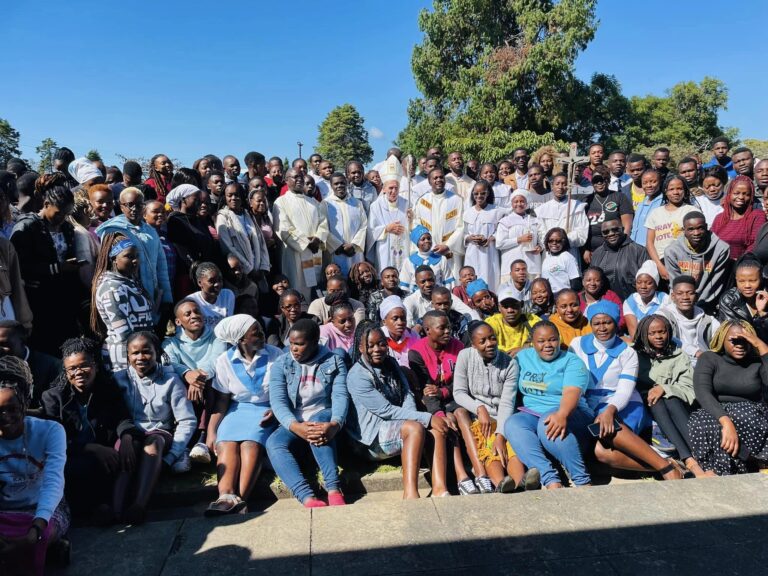As I was preparing for my marriage this year, I sat down with one of my mentors who has been married for 25 years and he advised me to be aware of expectations in marriage. How you set your partner’s expectations and fail to meet them, as well as your partner’s unmet and unsaid expectations. To me, this is the pinnacle of the Synod.
Yes, undoubtedly people have been listened to, and the outcome is for everyone to consider, as we await the completion of the Synod of Bishops this October 2023 in Rome.
Most importantly, as we wait in hope with all the issues tabled, others high level and others will be defined as non-issues, the success of the Synod is also on you and me for we all play a part in the activation and dismissal of expectations.
The Synod on Synodality is a potentially transformative event for the Catholic Church and, in particular, for young people. It is an opportunity for the Church to listen to young people and to offer solutions and platforms for transformation.
The current Continental Working Documents capture the contributions and expectations of young people, but the Synod on Synodality must be genuinely synodal for this to be realised. Here are my expectations for the youth I continue to lead through the International Movement of Catholic Students – Africa:
1. Continuous Catechism: Youth in Africa and other continents are concerned about a structured catechism lacuna between the sacrament of baptism or confirmation and the sacrament of ordination or marriage.
Revising and contextualising YOUCAT is one approach, but it is insufficient if chaplains and lay animators who travel with youth are not completely engaged and prepared. The existence of a gap is apparent based on the findings of these three studies, a 2017 study conducted by the Symposium of Episcopal Conferences of Africa and Madagascar (SECAM), a 2018 research conducted by the Centre for Applied Research in the Apostolate (CARA), and a 2019 study conducted by the Pontifical Council for Culture.
For me, Continuous Catechism will include, but not be limited to, the following expectations.
2. Vocational discernment: Young people want practical assistance with discovering their mission. This sense of purpose enables them to make intelligent career or vocation decisions. It is important to observe that, when tied to a person’s faith, each career or vocation becomes the panacea of sainthood for ordinary work performed extraordinarily.
3. Contextual theology: Young people want a Church that is more contextually authentic and pertinent. A Church that caters to the needs of youth. A Church that transcends the theory of theology, travels with adolescents on their level and allows them to identify with a faith- and spirit-growing Church.
4. Inculturation: A local Church that understands its culture and teaches how each member of a specific society bridges the distance between culture, ancestral beliefs, and spiritual teachings. A local Church that is in touch with charisms and offers a platform for these charisms to manifest in the Church all in a bid to grow the Church spiritually.
5. Greater focus on social and environmental issues: In a world where social issues have been a major factor in the detachment of adolescents from their faith and spirituality, a greater emphasis on social justice and environmental issues is necessary. The Church then has a much greater obligation to encourage adolescents’ social justice efforts.
Since 2013, the National Movement of Catholic Students in Zimbabwe has played a significant role in every national election with its Pray, Register, Vote campaign. Youths and program participants from the campaign have recently become members of parliament and councilors. In addition, more than sixty Catholics were elected to public office in the 2023 national election.
6. Youth Synodal Leadership: Young people are tired of tokenistic leadership positions in the Church, and elders are tired of irresponsible young people.
I hope that the Youth Synodal leadership program we have begun in Africa in collaboration with the African Synodality Initiative will serve as a learning point for those travelling with young people on how to engage young people, chaplains, and laity animators to produce an empowered young synodal leader.
Today’s youths desire leadership roles, at least the responsible ones, and have so much to offer the Church. Remember that these positions facilitate young people’s vocational discernment!
Finally, the Synod must be contextual. Archbishop of Harare Robert Ndlovu once stated, “The Synod is not simply a procedure”. You have shared your contributions as a congregation, and the Zimbabwe Catholic Bishops’ Conference has shared as a country at the level of Africa, but it is unlikely that every contribution will be reflected in the document.
This implies that we must be a synodal people. Communicate as a parish, listen to everyone, and make adjustments as necessary. For me this signifies the need for everyone to be synodal.
The expectations you and I have for the Synod regarding synodality may not be met, but we owe it to ourselves as individuals, local Christian communities, and parishes to be synodal. Let’s make Synodality our way of life by at least making necessary acceptable transformations!
Pardingtone Nhundu is Zimbabwean and is Pan-African Coordinator for International Movement of Catholic Students and a published author. Contact him on LinkedIn at: Pardingtone Nhundu or on Twitter at: @SirPardingtone



